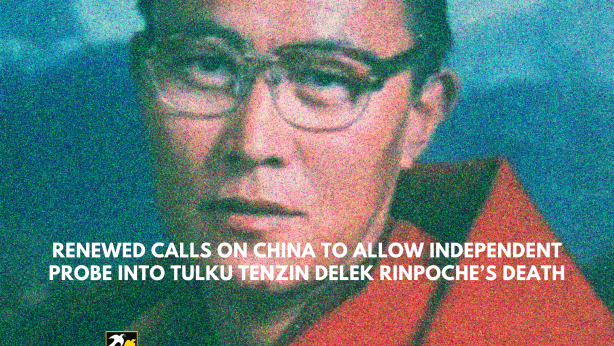Senior Tibetan Monk Arbitrarily Detained and Missing Since 2021 in Lhasa
Chinese authorities have subjected senior Tibetan monk Dhargye, 63, to enforced disappearance following his arbitrary arrest in Lhasa in August 2021. For more than four years, his family has been denied information about his fate or whereabouts.
Dhargye, son of Mr Choephel and Mrs Choelha, is from Awu Kyil Rigo village, Serthar (Ch: Seda) County, in Kardze (Ch: Ganzi) Tibetan Autonomous Prefecture, Sichuan Province. He is a respected monk of Serta Sera Monastery. Before his detention, Dhargye lived in Lhasa, where he undertook pilgrimages to holy Tibetan Buddhist sites, engaged in long retreats, and received teachings from eminent lamas. Known widely for his honesty and spiritual discipline, he was sought out to conduct consecrations of sacred objects, scriptures, and stupas by local Tibetans. To serve the community, he also operated a small shop in Lhasa where Tibetans brought sacred items for consecration.
On 5 August 2021, police in Lhasa arbitrarily arrested Dhargye together with two associates: his relative Tsering and a nun named Choekyi. Although the two were released after several months, Dhargye has since disappeared. His family has received no official notice of his condition or location and has been denied the right to visit him. Chinese authorities have not disclosed the reasons for Dhargye’s detention. It is widely believed that he was targeted for maintaining contacts with Tibetans abroad.
Under Article 85 of China’s Criminal Procedure Law (2018), police are required to notify a detainee’s family within 24 hours of detention, except in cases involving national security or terrorism where such notification might “impede the investigation.” Even then, notification must be given once the circumstances preventing it no longer exist. The CPL also requires authorities to inform detainees of the reasons for detention and of the legal provisions on which it is based, and it guarantees the right to appoint defense counsel (Articles 33 and 37). In Dhargye’s case, the complete failure to notify his family for over four years and the denial of any access to counsel represent flagrant violations of China’s own domestic law.
One year after Dhargye’s detention, his brother Tsedo was also arrested. In August 2022, authorities detained him along with four other Tibetans from Awu Kyil Rigo village for organizing religious rituals, including smoke offerings to mountain deities and prayer ceremonies. In November 2023, the Kardze Intermediate People’s Court sentenced the five men to two years’ imprisonment. During their detention, Chugdar died in custody under suspicious circumstances.
In March 2024, UN Special Procedures experts raised serious concerns over the death in custody, urging the Chinese government to account for the treatment of the detainees and to clarify the circumstances of the death.Authorities frequently target monks, community leaders, and lay practitioners who organize or participate in traditional ceremonies. The denial of family access, lack of information about charges, and prolonged incommunicado detention in Dhargye’s case constitute clear violations of China’s obligations under international human rights law, including the International Covenant on Civil and Political Rights (ICCPR), which China has signed but not ratified and the Convention Against Torture (CAT), which China ratified in 1988.


